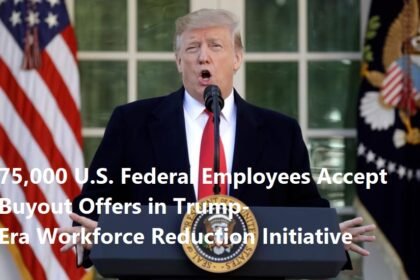TikTok, the short-video platform owned by Chinese company ByteDance, has become one of the most popular apps worldwide, with millions of users in the United States alone. However, in recent years, the app has faced increasing scrutiny from U.S. lawmakers and government officials, leading to discussions about the possibility of banning the platform in the United States. Concerns about data privacy, national security, and the influence of foreign governments have fueled these discussions, with some arguing that TikTok poses a risk to American users’ privacy and security. This article explores the reasons behind the push for a TikTok ban, the potential consequences, and what the future holds for the app in the U.S.
The primary reason behind the potential TikTok ban revolves around national security concerns. U.S. officials worry that TikTok’s parent company, ByteDance, could be compelled by the Chinese government to share user data due to China’s strict data privacy laws and influence over companies based in the country. Under China’s 2017 National Intelligence Law, companies are required to cooperate with government intelligence operations if asked. This has led many to question whether TikTok could be used as a tool for espionage or surveillance.
Critics of the app argue that the Chinese government could gain access to sensitive information, including location data, browsing history, and personal details, which could potentially be used for political or economic purposes. While TikTok has repeatedly denied sharing user data with the Chinese government, the concerns remain, particularly given the ongoing geopolitical tensions between the U.S. and China.
Moreover, there are worries about the influence of foreign governments over the content shown to U.S. users. Some have raised concerns that TikTok’s algorithm could be used to manipulate or control the information consumed by American users, promoting certain narratives or suppressing others. This has sparked fears about the app’s potential role in shaping public opinion and influencing elections, making it a subject of interest for policymakers.
In response to these concerns, the U.S. government has already taken some steps to limit TikTok’s presence. In 2020, under the administration of then-President Donald Trump, an executive order was issued attempting to ban TikTok, citing national security risks. The order would have forced ByteDance to sell its U.S. operations to an American company, but it was blocked by courts and never fully implemented.
Additionally, some states and government agencies have already banned TikTok on official devices, citing cybersecurity concerns. The U.S. military, for instance, prohibited the app from being installed on government-issued phones, and a number of state governors have followed suit with similar bans. These actions reflect a growing distrust of the app, especially on devices used for sensitive work or by government officials.
If a nationwide TikTok ban were to be implemented in the U.S., the consequences would be significant, both socially and economically. On a social level, millions of Americans who use TikTok to share creative content, connect with others, or stay informed would be affected. TikTok has become a major platform for influencers, businesses, and content creators, with many individuals relying on it for personal expression and income generation. A ban would disrupt these activities, forcing many creators to find alternative platforms to engage with their audience.
Economically, TikTok has become a key tool for digital marketing, and a ban could have a ripple effect on businesses that use the platform to reach customers. Small businesses, especially those in the fashion, beauty, and entertainment sectors, have capitalized on TikTok’s viral nature to promote their products and services. A ban could hurt these companies’ ability to reach younger consumers, who make up a large portion of TikTok’s user base.
Moreover, the TikTok ban could set a precedent for other countries to take similar actions against apps owned by foreign companies. It could lead to an escalating “tech cold war” where governments prioritize national security over the global reach of social media platforms, resulting in fragmented digital ecosystems and reduced international cooperation in technology.
TikTok has consistently defended itself against accusations of espionage and data misuse. The company has stated that it stores U.S. user data in the United States and Singapore, and it has pledged to take further steps to safeguard privacy, including a proposed “transparency center” to allow external experts to review its data practices. TikTok has also been in discussions with the U.S. government to find a solution that addresses national security concerns while allowing the platform to continue operating in the U.S.
The future of TikTok in the U.S. remains uncertain. While there have been no official moves to ban the app on a nationwide scale, the increasing political pressure and the growing concerns around privacy and security mean that a ban could still be a possibility. For now, TikTok is continuing to operate in the U.S. and is working to build trust with both lawmakers and users.
The debate over whether to ban TikTok in the U.S. highlights the intersection of technology, privacy, and national security in an increasingly interconnected world. While concerns about data security and foreign influence are valid, the potential social and economic impacts of a TikTok ban cannot be overlooked. As the situation unfolds, it will be important to balance national security interests with the desire for open access to digital platforms and the free flow of information. The future of TikTok in the U.S. may depend on how these issues are addressed and whether a solution that satisfies both sides can be reached.













